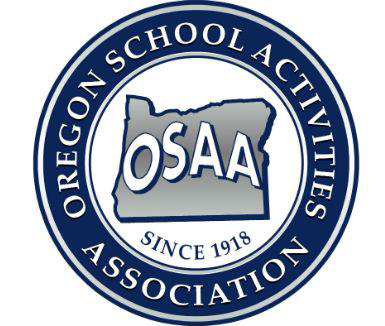A.D.ministration: 10 Ways for Working with Difficult Parents
When one thinks about the tasks and responsibilities involved with an athletic administrator’s position, many revolve around athletes and coaches. This would be normal and understandable. But there is another group of individuals whom you also have to work with and that is parents.
While the vast majority are good and supportive, there may be a few who are difficult, misguided, and problematic. It is this small group that will cause enormous headaches and take huge chunks of time to solve problems they have created. How bad can it be?
 In a mid-western state, an athletic director was rushed to the hospital during an event when the athletic trainer observed and thought that he was suffering a heart attack. After a battery of tests and an overnight stay in the hospital, it was determined that the symptoms were not related to his heart. The causal agent was stress and directly related to misguided parents.
In a mid-western state, an athletic director was rushed to the hospital during an event when the athletic trainer observed and thought that he was suffering a heart attack. After a battery of tests and an overnight stay in the hospital, it was determined that the symptoms were not related to his heart. The causal agent was stress and directly related to misguided parents.
In the previous week before this health scare, the athletic administrator was continually subjected to a multitude of complaints and harassing conversations. These interactions were in reaction to school district protocols and procedures which were instituted to protect student-athletes and coaches from COVID-19. The athletic director became the target since he had to communicate and enforce these provisions. Tough dealing with some parents? You bet!
The following are some sound, practical suggestions that should help with this challenging task.
- Establish expectations for parents. There are some involved in athletics who may suggest that one shouldn’t start items on your list with ‘thou shall not,’ but you do want to spell out the parameters for parents. One way to communicate these parameters is in the form of a contract. If your principal and superintendent don’t like the term ‘contract,’ use an alternative. And lastly, have parents date, sign, and return this document for you to keep on file. It is extremely important for both parents, even if they are divorced and living separately, to sign it. Why? If only one signs, the other can easily and conveniently say, “I didn’t know anything about these expectations.” This signed contract provides the basis for accountability.
- Communicate proactively by anticipating and heading off potential problems. This also means that you want to be effective by being clear so that parents understand what you are explaining. They don’t have to agree or like your message, but you do want them to grasp it. It is also important to be efficient and to share your information as soon as possible. A lapse in time can cause additional problems. Therefore, get your message out there.
- Use every vehicle and medium possible to communicate with parents. This increases the possibility of reaching the greatest number of individuals and, therefore, achieving the goal of being effective and efficient. In your school, you may be able to use the website, scheduling vendor, email distribution lists, Facebook page, Twitter, and other possibilities.
- Learn to listen attentively and carefully. In many conversations, and this goes beyond those with misguided parents, if you are formulating your answer, you are probably not taking in what is being said. Great effort should be taken to truly try and understand the parent’s position. This does not mean that you have to agree, but trying to grasp and frame their concern is valuable.
If a parent legitimately thinks that you have listened, he or she quite often will appreciate this fact even if they are extremely upset with you. By being able to express themselves and to vent is in itself an important step toward eventually coming to a possible resolution. And even if you disagree with the parent, always end with, “Thank you for sharing your concerns.” This one statement can seriously diffuse even the tensest of situations.
- Never Assume. This means even though you may have covered some expectations, for example, at a pre-season parent meeting, not everyone will have accurately heard everything and some may have missed entire portions of the presentation. It is, therefore, necessary to state details and expectations every time that you have interactions with parents. In this manner, you can be assured that they heard the necessary explanation or information.
In these communication efforts, you should cover why you do things within your program and what is the foundation or basis of it. These points, principles, and expectations have to be constantly presented and reinforced. Why? Individuals forget or possibly ignore details and guidelines, and every year you get new parents coming into your program. Messages have to be constantly repeated.
- Develop a logical, workable chain of command. It should always start with the athlete. If there is a question or concern, a young person should always approach his or her coach and discuss it. Only after this first step has been taken, may the parent get involved and they too must initially start with the coach. If there is no resolution, the parent can then go to the athletic administrator, principal, and superintendent in that order.
Not only do you have to communicate this approach to parents, but it is also essential that you get your principal and superintendent totally on board. If you don’t, parents will soon realize that there is no need to follow this chain of command. On the other hand, when your supervisors send messages back down to the lower levels, parents will get the message.
- Install a 24-hour rule. If there is a problem, any meeting to deal with it needs to be scheduled for the following day or two. This allows the emotions of both parties — you and the parents — to subside a little and to allow for a fact-based conversation. The delay also gives you a chance to gather information from coaches, spectators, and security personnel and to gather essential, supportive background documents to support your position.
- Remain calm and be as positive as possible during conversations, phone calls, or meetings. You must always present a professional image and approach during interactions with parents. You should also, however, always insist that parents cannot use foul or inappropriate language when they are presenting their concerns and yelling has to be avoided. Explain right up front that the meeting or conversation will end if this behavior does occur.
- Always keep your supervisor — principal or superintendent — in the loop. This step would include letting them know in advance of a potentially difficult or contentious meeting and also what occurred during any contact that you have had with a parent. After all, if the parent is still unhappy after the meeting, their next step is to quickly contact the first-available senior administrator.
- Make notes and document what took place in a meeting or during a critical phone call. Include the date and time on your notes and place this report in a file for future reference. Never rely on your memory.
Dealing with parents who may be difficult and problematic is a huge and complex task. All individuals are unique, the situation within the school and community is ever-changing and parents continue to evolve. Therefore, working with this distinct group is a critical part of your position and one in which you constantly have to look for new approaches and best practices.





